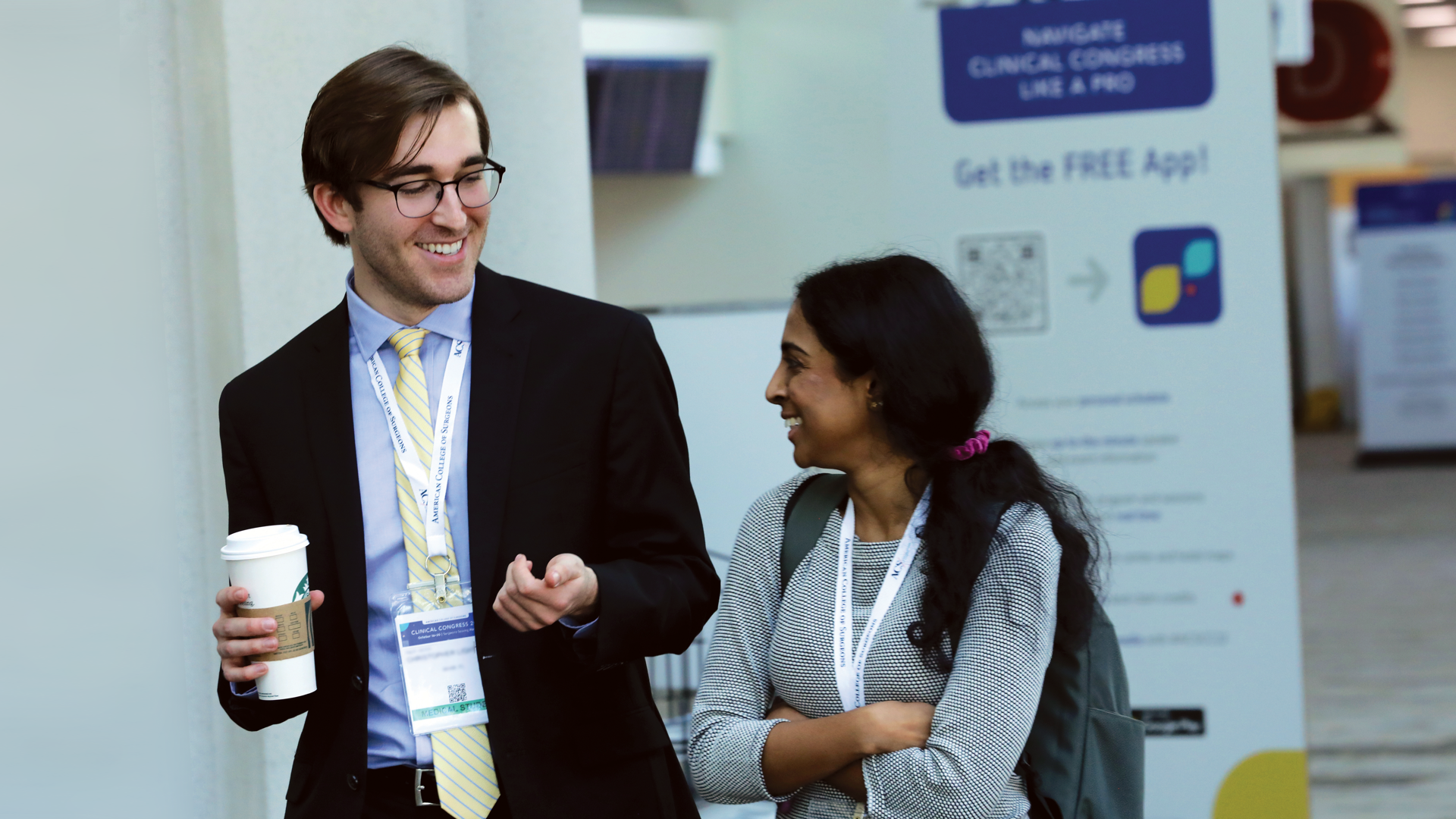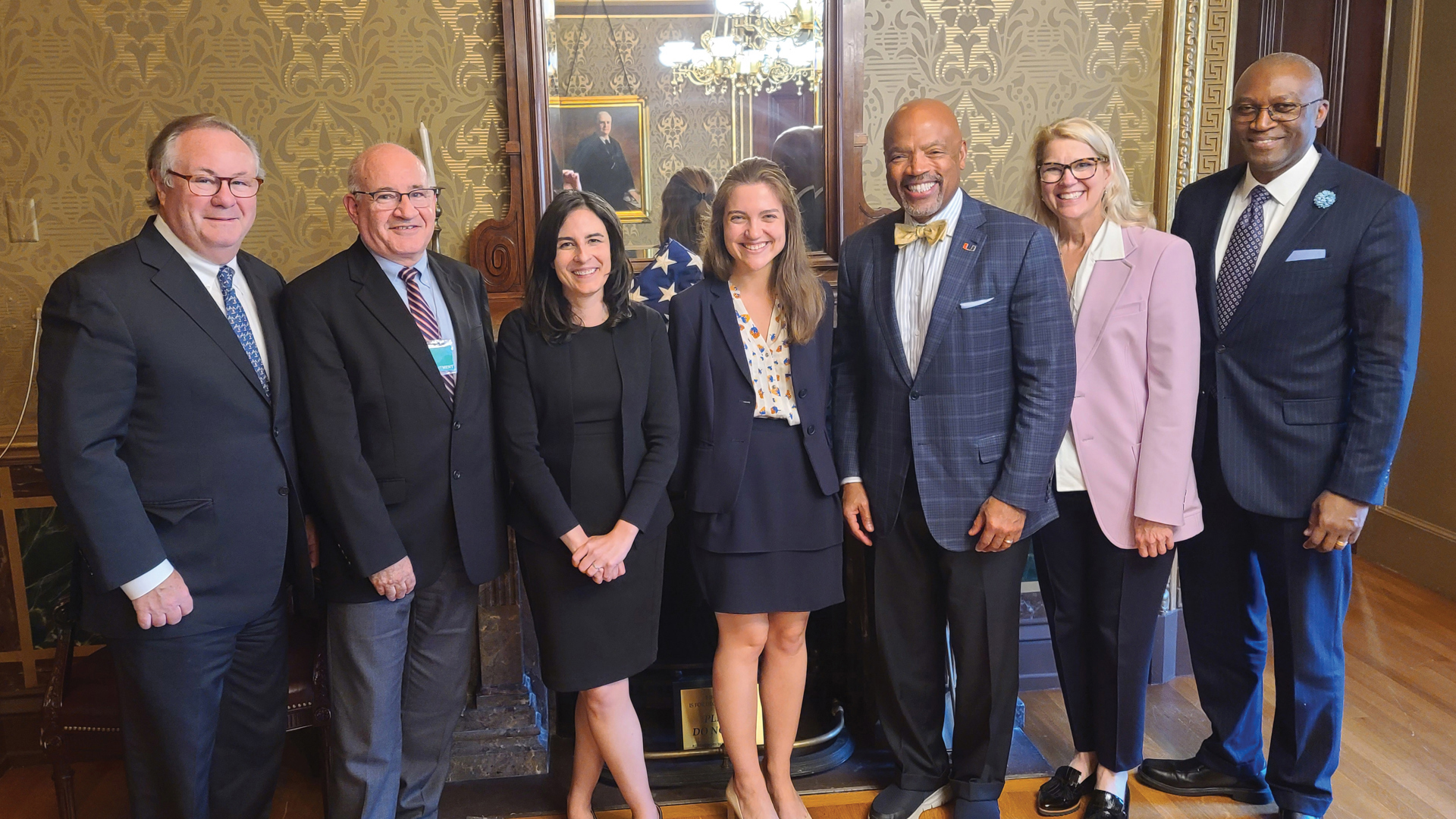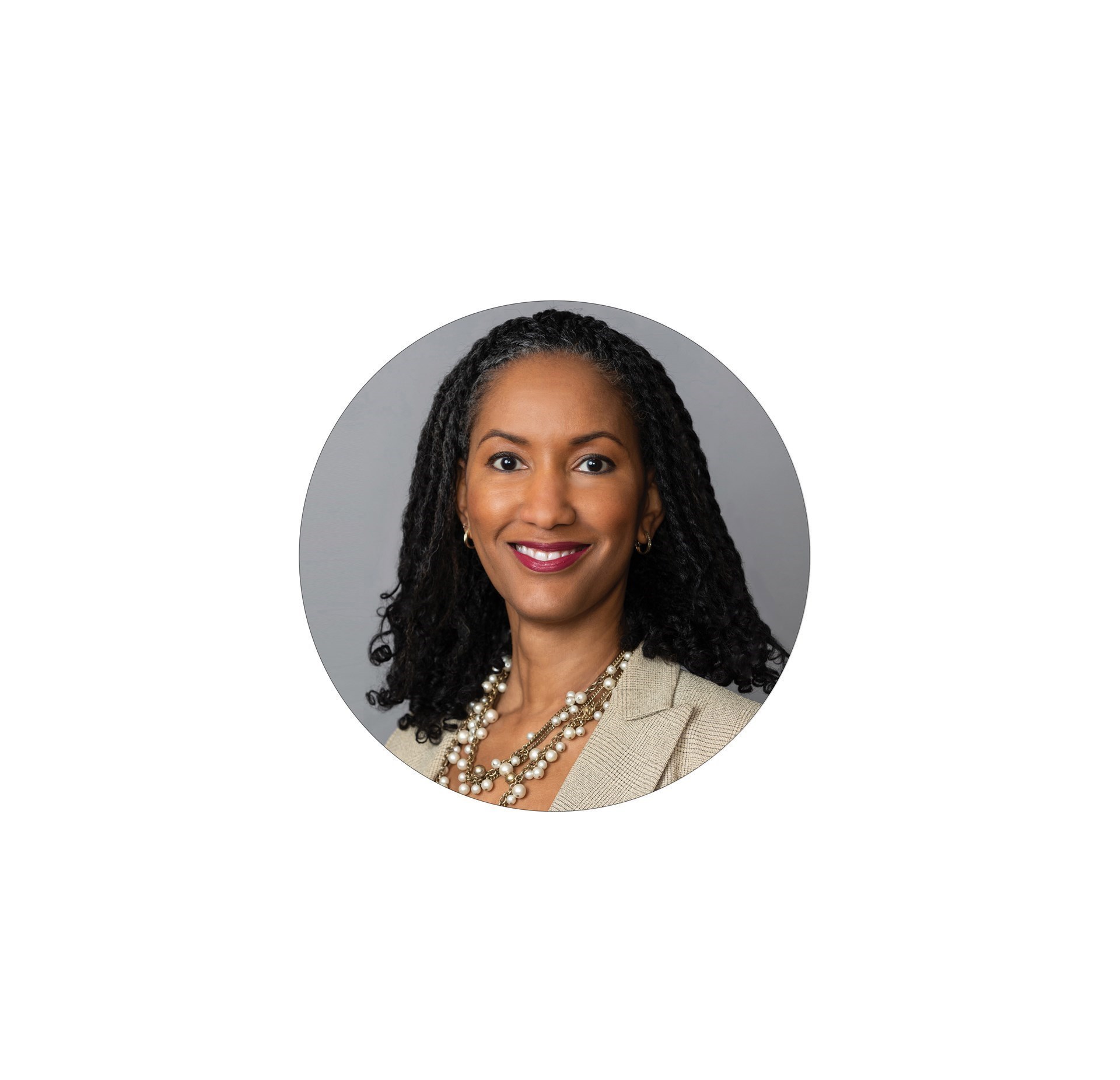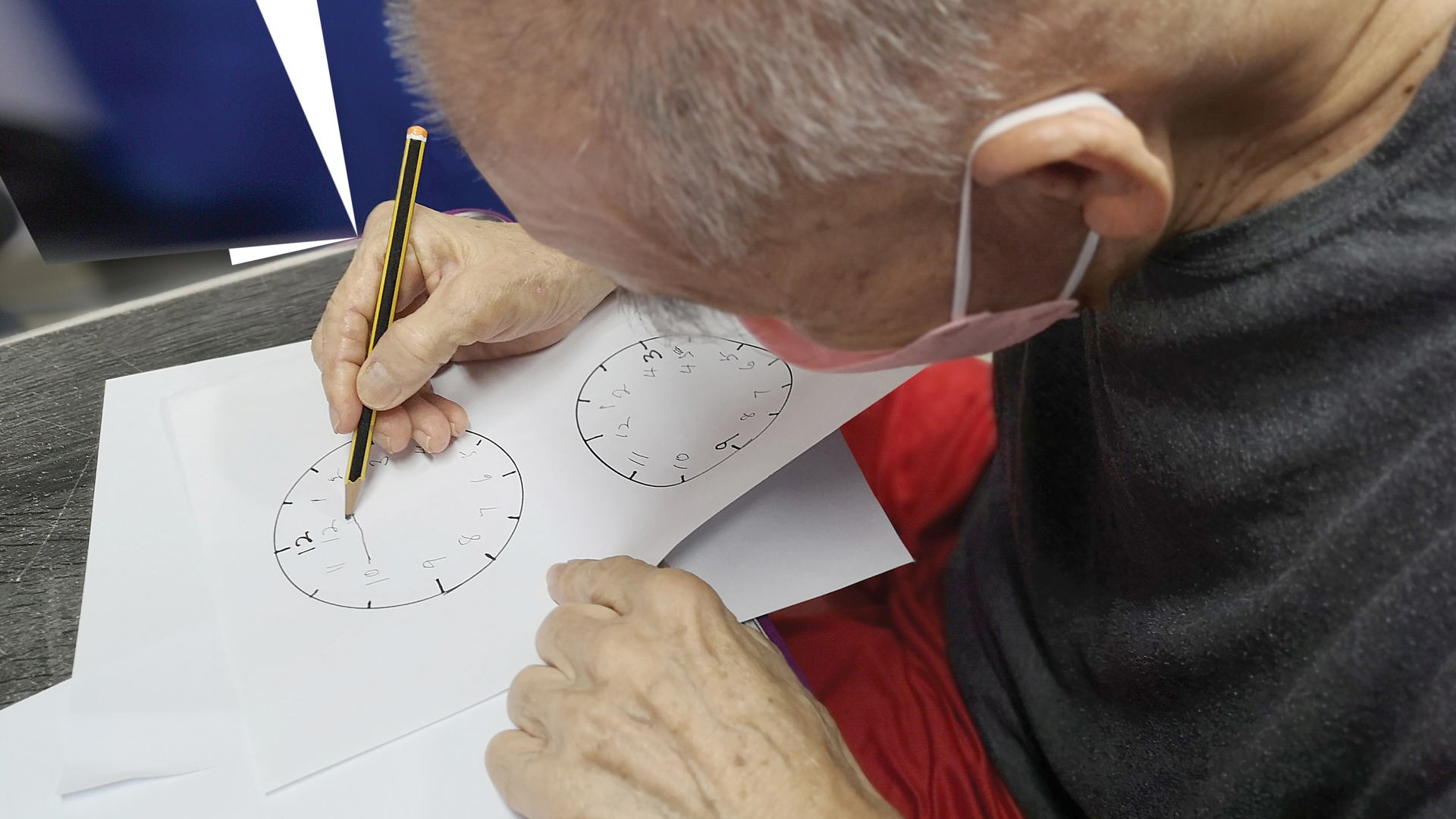First, a disclaimer: the author of this viewpoint article is a member of the ACS Program Committee and, as such, has a highly favorable bias toward participation in surgical meetings.
Be that as it may, it is worth highlighting a few reasons why surgeons may benefit from participating in what could be considered an archaic tradition—to gather in person each year in a different city to share knowledge and ideas with colleagues.
The first Clinical Congress took place in 1910 under the auspices of ACS Founder Franklin H. Martin, MD, FACS, with 1,300 attendees. Since then, this annual event has been one of the largest gathering of surgeons in the world, bringing together an increasingly diverse range of surgeons from all specialties.
For many decades, attending an annual meeting of their surgical society of choice was the only way for practicing surgeons to meet the continuing medical education (CME) requirements necessary to maintain their licenses to practice. As such, attendance at these meetings was a foregone conclusion, and the assembly with the highest number of CME credits available would more or less be guaranteed a strong attendance rate.
Since the early 2000s, as Millennials and Gen Z fill the ranks of practicing surgeons, the question to consider is whether in-person meeting attendance can remain relevant to a generation raised on digital media. With a plethora of free information readily available online, much of it accredited for CME, is there a reason to take time away from a busy practice to attend a meeting?
If there were no other purpose for a meeting other than passive absorption of information, my answer to this question would be “no.” There are plenty of expeditious ways to obtain factual data on the latest advances in surgery—much of it from reputable sources just a few clicks away.
The reason to attend a surgical meeting is for everything that exists around the periphery of the panels of experts imparting didactic information. It is the discussion from the floor, the provocative questions, the personal anecdote that stirs something deeper within us, much more than a mountain of data ever could.
It is the chance to interact with the speakers after their talk and make a connection that can lead to a conversation, a research collaboration, or simply—and perhaps best of all—a friendship.
It is finding like-minds (and, perhaps, even more importantly, not-alike minds!) among others in the audience, and strengthening these connections at social events. In a world that is increasingly siloed across geographic, subspecialty, and political divides, it is imperative we have the opportunity to meet each other across these artificial boundaries.
For private practice and academic surgeons, rural and urban, US and international, to gather in a shared space and learn about the challenges the others are facing, benefits us all, as does realizing where we are alike and where we are different in order to move our profession forward and improve patient care.
It is the networking events at in-person meetings such as Clinical Congress, which will be held in Boston, Massachusetts, this year, that allow academic surgeons to introduce their trainees to colleagues who might offer them a job, and for private practice surgeons to recruit new partners to their practice. It is the chance to interact with others by serving on a committee, and creating something that benefits our profession, and our patients.
Finally, and perhaps most importantly, it is the opportunity to be reminded that we are not alone. As surgeons, we historically have been “Captain of the Ship.”
Despite the intentional effort to shift this mentality into the modern model of interprofessional teamwork, this approach continues to dominate the operating room. We are expected to be excellent team players and share authority, while also holding ultimate responsibility, and thus liability, for patient outcomes.
Throw in the additional challenges faced by surgeons of minority and marginalized backgrounds of various types, and this becomes a daily exercise in walking a tightrope. While all these goals are well-intentioned, it can place surgeons in a position that is confusing, difficult—and lonely.
It is not surprising that descriptions of second victim syndrome, burnout, attrition from clinical practice, and early retirement are on the rise. Learning to be a surgeon is hard; holding the responsibility for another’s life placed in our hands as an attending surgeon is harder. Doing this all day, day after day, while faced with myriad regulatory, administrative, and financial obstacles can feel like constantly swimming upstream. Very few individuals can fully understand the exhaustion that results from these challenges, and none as much as other surgeons.
During the COVID-19 pandemic, in-person meetings were temporarily placed on hold and converted to online virtual events throughout the medical world. While many tried to remain engaged in this new format, and the didactic content remained excellent, it was quickly evident that a virtual conference was not an equivalent experience to in-person meetings.
The activities of daily life at work or home would take precedence over sitting in an office with the door closed to watch educational sessions on a computer after we had already spent the entire day staring at ourselves on screen through innumerable videoconferences. “Zoom fatigue” and the lack of protected time to attend a conference without other distractions served to discourage participation for most of us.
Vivek Murthy, MD, US Surgeon General, recently raised the alarm on the epidemic of loneliness and social isolation in America. Massive advances in technology, and the resulting shift in social interactions from in person to online and automation (e.g., self-checkout and online shopping versus your local corner store) have resulted in the most isolated society in human history.
Humans are social animals, and there is overwhelming evidence of severe adverse consequences to our health and well-being with every step we take away from in-person interaction and connection with others.
Surgical meetings provide the best opportunity there is to interact with others facing the same challenges that we do. We build a network of colleagues whom we can call on for help with professional and personal challenges and crises.
We interact both in the educational sessions and in animated conversations in the hallway outside. We discuss topics of interest with experts in the field to whom we may not otherwise have easy access.
We cut loose at the designated social events, and perhaps even strike up a conversation with a random colleague while in line for dinner, with whom we otherwise would never have connected.
For me personally, the connections I’ve made with other chairs, surgeons within and outside my own specialty, retired surgeons now pursuing other adventures, and trainees in the surgical community at Clinical Congress have resulted in a more diverse perspective on our profession—past, present, and future.
Over the years, several of these acquaintances have become a strong cohort of friends whom I can call on anytime for help, advice, a confidential sounding board, or occasionally just to vent, since we all have those days. Having this network outside of my own immediate circle in the workplace is perhaps my best reason to attend Clinical Congress and other surgical meetings. The fact that there is excellent educational content to anchor it all is simply a bonus.








